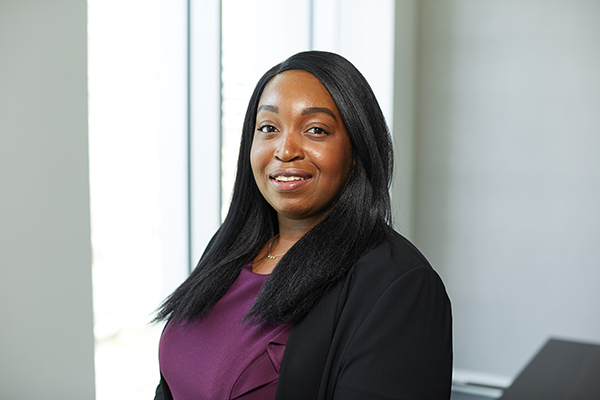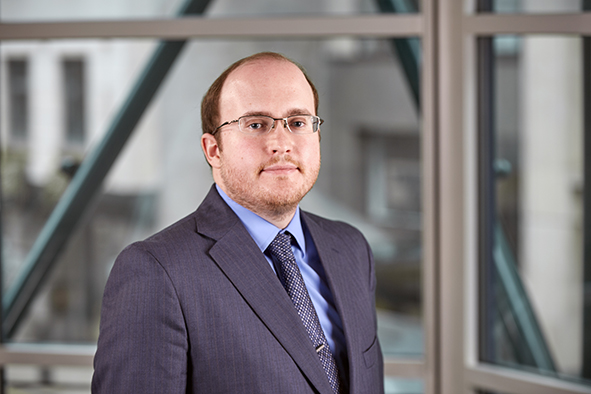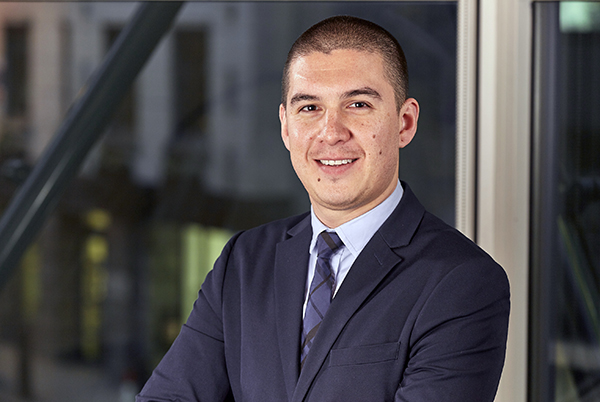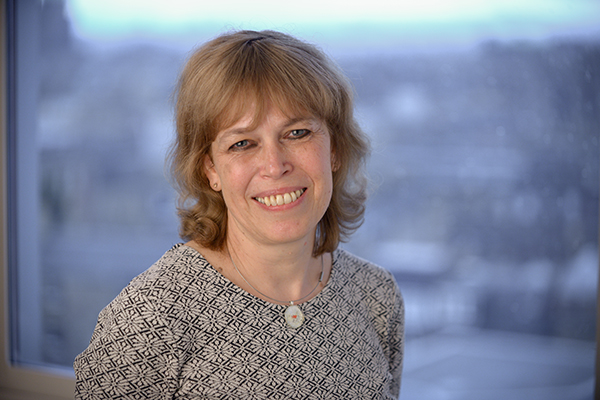This week is National Pro Bono Week. To mark the occasion we will be profiling colleagues who have been actively involved in our pro bono work, finding out more about the positive impact this work has had on both our colleagues and clients.
Priscilla Addo-Quaye (Associate)
Why did you decide to get involved in pro bono work?
I decided to get involved in pro bono work to make a difference. Pro bono work provides a great opportunity to help clients with real-life issues they otherwise may not be able to seek advice on by other means.
What is the most interesting work you have undertaken pro bono?
Following the tragic Manchester Arena bombing, our firm was one of the first firms to join the Manchester Law Society Pro Bono Panel. The Panel was set up to provide legal assistance to those who had lost their loved ones and those who had been affected by the bombing.
I was keen to volunteer to provide support to those affected. I was responsible for the coordination of pro bono representation for three bereaved families who lost loved ones, including a client who also suffered life changing physical injuries as a result of the attack.
Inquests opened into the deaths of the 22 victims to explore the build-up to the attack and establish whether the attack could have been prevented. We represented our clients on a pro bono basis for 18 months until the Inquests were converted to a Public Inquiry. During this time I built strong relationships with our clients and provided support and assistance throughout by explaining the Inquest process, taking instructions on sensitive matters, and acting as primary contact in the event of any questions or concerns.
We provided further pro bono assistance to our bereaved families to preserve their position in the event of any potential civil claims they may wish to pursue at conclusion of the Public Inquiry.
What is the biggest impact you have seen pro bono work make?
The biggest impact I have seen has also been in relation to Manchester Arena. Without pro bono representation, our clients would have been denied the opportunity to participate in what is a complex, large scale and technical investigation to establish what happened to their loved ones and whether their tragic deaths could have been preventable.
Our clients have repeatedly expressed their sincere thanks and gratitude for the unwavering support and assistance provided to them during the most difficult period in their lives.
Whilst the work has understandably been challenging at times, I have found it to be an extremely rewarding experience. To know that we are supporting the families in their search for answers has been incredibly fulfilling.
Chris Fox (Managing Associate)
What have you learnt from doing pro bono work?
Pro bono work takes on many different forms and the work that I have been most closely involved with during my time at AG is Springfield, the London advice centre where trainees and associates help members of the public with problems involving housing, debt and benefits.
Sadly, one of the things that I have learned doing this is just how thin the 'safety net' is – the rules for Universal Tax Credit for example are easily as complicated as anything that I come across during my day job as a tax lawyer but they are not always understood properly by the people affected by them or by the people in charge of enforcing them.
More positively, I have learned things that I would otherwise never have learned (or that would have taken an entire career to sink in) – things about how to advise people without much legal expertise or experience, how to have difficult conversations with people when discussing things that affect their lives and how to collect information during interviews. All of these skills have been incredibly useful during my main role.
I have also learned more about consumer rights, housing rights, council tax, UCT and the nuance and depth of Lambeth council hold music than I ever thought I'd know!
What is your main incentive in carrying out pro bono work?
I can talk at length about how pro bono work benefits people personally and professionally, how it expands the skillsets of trainees and associates and how it is enormously beneficial for the firm and our clients and all of these things are true. That said, the main thing incentivising me to do pro bono work is that it feels like the right thing to do and one of the most effective ways to do something good – many of us have at years of legal training and putting that to use to help people gives those people access to legal skills that would otherwise be out of their reach. I think that ultimately, everyone who does pro bono work feels the same way.
What is the biggest impact you have seen pro bono work make?
We assist with a lot of housing queries at Springfield. You can never overestimate the impact of being able to help someone keep their house, beat an illegal eviction or access council resources that end up with them living in a home that is their own – housing security is such a fundamental thing that I know I routinely take for granted but it is absolutely foundational in putting people in a position in which they have a chance to thrive.
What motivates you to get out of bed in the morning?
Coffee.
Nathalie Allen (Legal Director)
What have you learnt from doing pro bono work?
My pro bono work has enabled me to meet people I might not otherwise have met, work with people I might not otherwise have connected with and address issues that might not otherwise have encountered. All these experiences add to what I am able to offer to clients and colleagues on a regular basis. Mostly I have learnt how very lucky I am.
What is the most interesting work you have undertaken pro bono?
One of the most interesting pro bono tasks I had to do related to a boundary dispute between Sudan and South Sudan. As the only person on the team who spoke Italian, I had to spend a week in a monastery in Rome looking through old archives of missionaries’ diaries in Italian following nomadic tribes in Sudan to help establish historical boundaries. It was not an everyday experience and it was quite surreal being the only woman to have lunch with a couple of hundred monks every day!
What is the biggest impact you have seen pro bono work make?
I think The Chancery Lane Project is having a fantastic impact and at just the right time. The project is really bringing to the fore just how much the legal community can help advance companies’ and States’ approaches to sustainability in the long term. It is really interesting to see how contractual clauses, model laws and protocols can really make a difference and how this is pertinent to such a wide number of different practice areas.
What is your most memorable pro bono accomplishment?
A few years ago, I was on a team that secured the release of a political prisoner in Cameroon. He was a musician and had been unfairly detained because of the anti-Government message in his songs. We obtained a declaration of unfair detainment from the UN which pressured Cameroon to release him. When he was released not long after, we secured visas for him and his family to move to the US.
What motivates you to get out of bed in the morning?
Honestly, my children. At 6.30 in the morning, they leave little room for any other motivation.
Marcel Marquardt (Managing Associate)
Why did you decide to get involved in pro bono work?
Growing up I was not given the opportunities that some others were. I had no connections to the legal industry, no one in my family (immediate or extended other than my father) had a university degree. Therefore I saw my relatives, friends and community struggle with legal issues and generally understanding their rights. Most at some point had either been taken advantage of or gave up due to their lack of education and understanding. Pro bono work has always been an extremely important part of being a lawyer for me. I have been given an amazing opportunity and platform to use my legal skills to assist those who need but can't afford them. Also it allows me the access to a large and extremely talented pool of lawyers to try and get more people to do pro bono work.
What have you learnt from doing pro bono work?
I have experienced things from doing pro bono work that I would never have had the opportunity to otherwise experience. Working in a corporate law firm we generally deal with employees of a company. With pro bono work, the people instructing you are personally engaged in or impacted by the issue they need assistance with and are therefore more personally and emotionally involved. Pro bono work reminds me that the law is not just transactional and for businesses but that also it impacts people in so many different ways. Pro bono work can put a human face to the work we do.
How do you think pro bono work has an impact on communities?
As money for charities dries up during Covid-19 and the income inequality gap gets wider, pro bono support is vital for the survival of charities, social enterprises and communities. Lawyers have an exceptional opportunity to use our skills to benefit each of our individual communities (however you define your community – i.e. gender, ethnicity, demographic, locality, minority, sports club, hobbie etc) in a direct and lasting way for example without AG's assistance Stopcocks would not have been able to set up their national register of tradeswomen which keeps women safe and helps women feel safe by reducing the occasions women have open their doors to men that they don’t know and allow them access into their homes. This is an important initiative particularly during Covid as the rate of domestic violence against women has dramatically increased. Simply put AG has directly assisted with keeping women safe in their own homes.
What motivates you to get out of bed in the morning?
Besides having to take my dog Stella out to go to the toilet, I have been very lucky in my life (I was born in a rich country and my support network was reliable and loving) therefore I wake up every day working towards a personal position where I can say that I have given more to this world than I have taken from it.
Nicola Winchester (Legal Director)
Why do you think pro bono work is so important?
It’s a way that lawyers can use their skills to help charities, community groups and individuals who couldn't otherwise afford to pay for legal advice. To me this feels like something we should all be doing if we can! The Scottish offices in AG have been involved with CSR People initiatives for years and pro bono work is a natural extension of this. Although there aren't University law clinics running at the moment – in the past we have helped out with law clinics run by Edinburgh and Strathclyde Universities – AG's involvement with Trust Law and Law Works mean that anyone who is interested can put themselves forward to help out with the pro bono opportunities that Marcel e-mails round which tie in with their practice area. And if you have clients or contacts who have ideas for pro bono work please contact anyone on the pro bono committee.
Give some examples of pro bono work the Scottish offices have recently done
Ross McKenzie in the Aberdeen office with Erin Shoesmith in Manchester worked with Royal Mail Group to help identify clients of AG to host an online portal link on their websites to give victims of domestic abuse online support – a panic button called Safe Spaces.
Jo McLean and Matt Finnie in the commercial team in Edinburgh helped a non-profit making business called Seable which provides end-to-end holidays that are tailored for the needs of blind / visually impaired people, update their terms and conditions especially around cancellation and refund rights.
The Scottish RE Department reviewed a form of tenancy agreement with Perth Council for our Charity Partner The Rock Trust to allow homeless young people to use empty Council flats in Perth.
What is the most interesting pro bono work you have been involved with?
Helping draft a model clause for The Chancery Lane Project's Climate Contract Playbook this summer was not only interesting but also - because we were working in teams – collaborative pro bono work in a team. The idea of lawyers giving up their time to draft clauses to fight climate change where the pro bono "client" is the world is really inspirational.
What motivates you to get out of bed in the morning?
My Nespresso machine – not the most eco but my favourite kitchen appliance.
If you could have a superpower what would it be?
The ability to time travel. I loved the idea of Hermione in Harry Potter managing to gain all those extra hours by going back in time with her time turner.